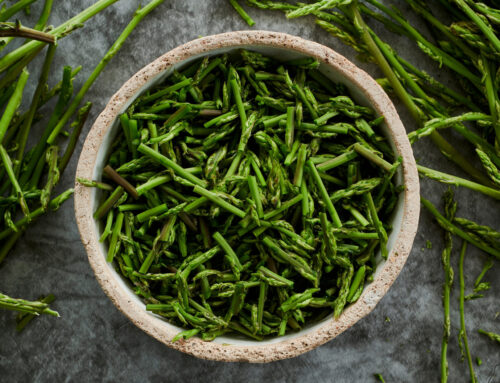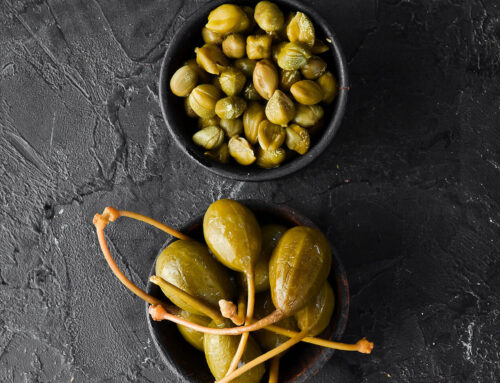Corinthian Raisins (Currants): A Sweet and Nutritious Greek Superfood
Corinthian raisins, also known as currants or “stafida,” are small, seedless, dark-colored grapes that have been dried to create a sweet and versatile ingredient. Native to Greece, particularly the region of Corinth, these raisins have been valued for their unique flavor and health benefits since ancient times.
Corinthian Raisins: A Rich Greek Tradition
Corinthian raisins are produced from the Black Corinth grape variety, which has been cultivated in Greece for thousands of years. Their distinct taste and texture, along with their long shelf life, have made them a prized export since antiquity. Today, Corinthian raisins continue to be an essential ingredient in Greek cuisine, adding natural sweetness and flavor to a variety of dishes.
Nutritional Profile
Corinthian raisins are a nutrient-dense food, providing an excellent source of natural sugars, dietary fiber, and essential vitamins and minerals, such as iron, potassium, and vitamin C. They are also rich in antioxidants, particularly phenolic compounds and flavonoids, which contribute to their numerous health benefits.
Health Benefits
The consumption of Corinthian raisins has been linked to several health benefits, including:
Energy Boost
The natural sugars in Corinthian raisins provide a quick source of energy, making them an ideal snack for endurance athletes and those needing a pick-me-up.
Digestive Health
The dietary fiber in Corinthian raisins promotes healthy digestion and can help prevent constipation.
Heart Health
The potassium, antioxidants, and polyphenols in Corinthian raisins may help lower blood pressure, reduce LDL (bad) cholesterol levels, and support overall heart health.
Bone Health
Corinthian raisins are a good source of calcium, which is essential for maintaining strong bones and preventing osteoporosis.
Culinary Uses
Corinthian raisins are a versatile ingredient in Greek cuisine, used in both sweet and savory dishes. They can be enjoyed as a snack on their own or incorporated into a variety of recipes, such as salads, pilafs, and grain dishes. Corinthian raisins are also a key ingredient in traditional Greek desserts like baklava, karydopita (walnut cake), and melomakarona (honey cookies), adding natural sweetness and depth of flavor.
Supporting Local Producers and Sustainable Practices
In addition to their traditional uses, Corinthian raisins are increasingly being incorporated into contemporary culinary creations. Innovative chefs and food enthusiasts are experimenting with Corinthian raisins in novel dishes, such as yogurt parfaits, granola bars, and gourmet cheese platters. This fusion of tradition and innovation not only highlights the enduring appeal of Corinthian raisins but also expands the possibilities for their use in modern gastronomy.
Corinthian Raisins in Modern Culinary Innovation
Corinthian raisins have a strong connection to Greece’s agricultural heritage and local communities. By choosing Corinthian raisins and supporting local producers, you can help preserve this cultural legacy and contribute to the sustainable development of the Greek agricultural sector. When purchasing Corinthian raisins, consider opting for organic or sustainably-produced products, which not only benefit your health but also support environmentally-friendly practices.
Corinthian Raisins in Food Preservation and Storage
The long shelf life of Corinthian raisins makes them an excellent option for food preservation and storage. Drying grapes into raisins is a natural method of preserving their nutritional content and flavor, ensuring that they can be enjoyed year-round. This aspect of Corinthian raisins is particularly significant in Greek cuisine, where food preservation techniques have played a crucial role in shaping the culinary landscape and providing sustenance during times of scarcity.
Corinthian raisins are a sweet and nutritious Greek superfood that offers a unique combination of taste, health benefits, and cultural significance. By understanding their distinct properties and incorporating them into your diet, you can fully appreciate the role of Corinthian raisins in Greek cuisine. Culinary arts students, chefs, researchers, and food enthusiasts can all benefit from embracing this antioxidant-rich, naturally sweet ingredient in their cooking and dietary practices, adding a touch of Greek tradition and healthful nourishment to their meals. Supporting local producers and sustainable practices ensures the continuation of this ancient culinary ingredient and its positive impact on Greece’s agricultural heritage and local communities.



